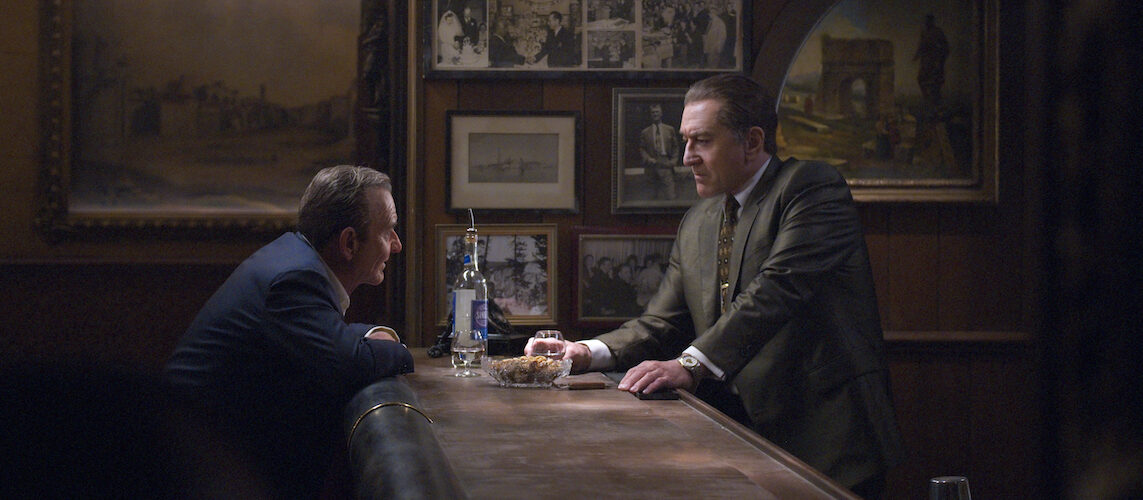

“Three people can keep a secret only when two of them are dead.”
Much can and has been said about The Irishman—about its elegiac tone, about Thelma Schoonmaker’s virtuoso editing, about the expensive de-aging of its ancient cast, about the homeliness of the criminal at the center of its story, about the breathing room afforded by its lengthy runtime, about the incredible soundscape that subtly ties it all together, and so on. As is usually the case, I find myself nodding along as I read through Adrian Martin’s thoughts on the film (although I think I enjoyed it more than he seems to have).
While not as purely entertaining as Martin Scorsese gangster classics like Goodfellas and Casino, across its three and a half hours The Irishman uses many of the same tricks that distinguish a Scorsese film. The director’s patented style of voiceover-montage telescopes us through time and space, into and out of various episodes of Frank Sheeran’s (Robert De Niro) life, falling into an intoxicating rhythm of brutal mob hits, backroom discussions, car rides, fancy banquets, shady lawyers’ offices, and conversations over dinner at fancy restaurants; all of it framed as a half-memory/half-fantasy relayed by its subject from the confines of a nursing home.
Where the picture deviates from the Scorsese gangster template is that instead of emphasizing the excess of the lifestyle, it focuses on an underling and the quotidian details of mob operations. Traffic jams and bathroom breaks and the like take up a lot of screen time and airwaves.
Taken under the wing of kingpin Russell Bufalino (Joe Pesci), Sheeran is tasked with “painting houses,” a job he undertakes with a workmanlike diligence hammered into him in the service—follow orders, respect the chain of command, stay in your lane. His driving force is not money or drugs or sex, but to provide stability for his bosses and hold together some semblance of a family life. He fails at both, but he doesn’t fall from the rickety pedestal of excess like so many other glamorized criminals because he never climbs up onto it in the first place. And so unlike the codas of previous gangster films, Frank Sheeran’s final days are marked less by irony than by muted spiritual agony.
More can be said about how The Irishman functions as a self-aware summing up of Scorsese’s life’s work as well as an ode to the trio of actors who more or less defined the gangster film on screen, but instead of rambling on I’d prefer to hit play again and watch these wizened masters at work.